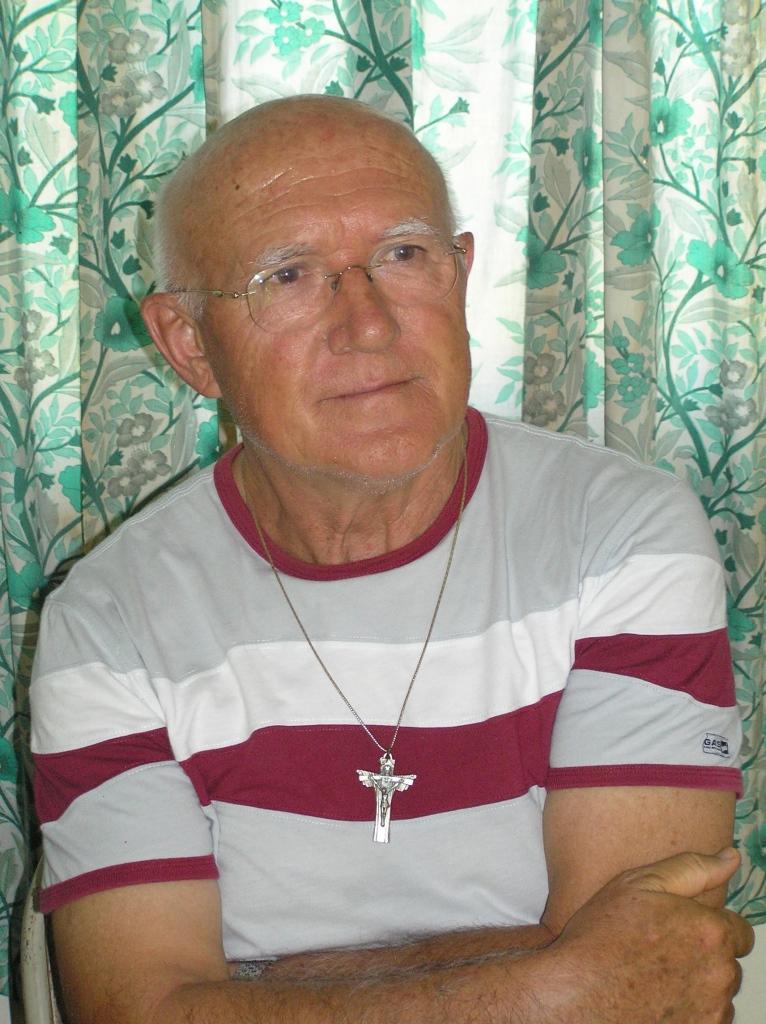Daniel Comboni
Comboni Missionaries
Institutional area
Other links
Newsletter
In Pace Christi
Stocchero Gino
Fr. Gino Stocchero was born in Villaverla (Vicenza) on 6 February 1941 and entered the diocesan seminary while still young. Sometime during his fifth year of secondary school, while in contact with Fr. Mario Mazzoni, he wrote from the seminary of Vicenza to the Comboni Missionaries: “Dear Father, I am a seminarian in love with the missions and would like very much to be a missionary”.
He did his novitiate in Florence where he took first vows on 9 September 1967. He studied theology at Padua. On 12 April, 1970, he was ordained priest by Mons. Edoardo Mason in a parish of Vicenza. He completed his theological studies at Padua and took perpetual vows on 9 September 1970.
After spending a year in England studying English, he was appointed to Uganda: Nyantonzi (1971-1981); Kigumba (1981-1988). After a Sabbatical year in Rome, he returned to Kigumba (1989-1994) as superior and parish priest. He was later transferred to West Nile, Uganda: to Parombo for three years, Odravu for six years, working in ministry and as superior and local bursar. After a short period at Akanyo, he moved to Angal (2005-2013) where he was local superior for nine years and provincial councillor for three years.
“If we look at Fr Gino’s personal; file – Fr. Renzo Piazza said during his funeral – we can see that he never knew the meaning of the word ‘rotation’. He spent 44 years, almost entirely without interruption in his beloved Uganda, in West Nile, learning various languages: Logbara, Alur, and Runyoro. Anyone who shared those years with him will always believe he had taken the mission totally to heart”.
Fr. David Paul Baltz, who spent a number of years with him in West Nile, remembers: “Gino was a rather simple man with a strong and fundamental desire to do good. He was very generous and was very much concerned with the pastoral care of the Christians. At a time when, in that part of the diocese, many catechists had as yet no specific training in preparation for the sacraments, he decided to help them with detailed programmes which he laboriously prepared each month. He was always busy with something and at one time dedicated many hours each week to setting up a banana plantation the fruits of which he later shared with the confreres and Sisters of other missions.
Being in a mission with no Brother, he became an able builder but, knowing his limits, he invited two Comboni Brothers to come and help him, especially in making measurements, when he built a large parish church.
Knowing how I preferred to visit the more distant chapels in the savannah of our parish, Fr. Gino did everything he could to make my safaris by bicycle more pleasant. He was very sensitive to my needs and when it happened that I was caught out in violent storms, he would come looking for me and when he found me he would greet me with a broad smile. He was always willing to give up some ministry in our parish to be able each month to work with the South Sudanese in the refugee camps bordering the mission.
He wanted me to know his family in Villaverla; I saw this as a way to strengthen our friendship; we would exchange greetings on our anniversaries of ordination and profession, as well as on our birthdays and saint’s days. Gino was a good man and a man of prayer, a peaceful person and a humble servant, a dedicated missionary and an understanding confrere”.
In 2015 he was transferred to Castel d’Azzano where he died on 1 June, 2017. Fr. Renzo Piazza commented: “Complaining was a word that was not to be found in his vocabulary. I never once heard Fr. Gino complain during the two years we spent together. He neither complained about God or the confreres or his situation of ‘enforced exile’ from the mission. His missionary style may be described in these few words: being close to people and being involved with them. He was always among the people. He was already living according to the invitation of Pope Francis to be ‘an outgoing Church’. He carried on this missionary style even in Castel d’Azzano where, though sick himself, he placed himself at the service of his sick confreres, never from a superior point of view but always as one close to them, who approached them and with discretion. We all admired his willingness to be a neighbour to Fr. John Troy, making common cause with him in all things great and small”.
Da Mccj Bulletin n. 274 suppl. In Memoriam, gennaio 2018, p. 63-67.

